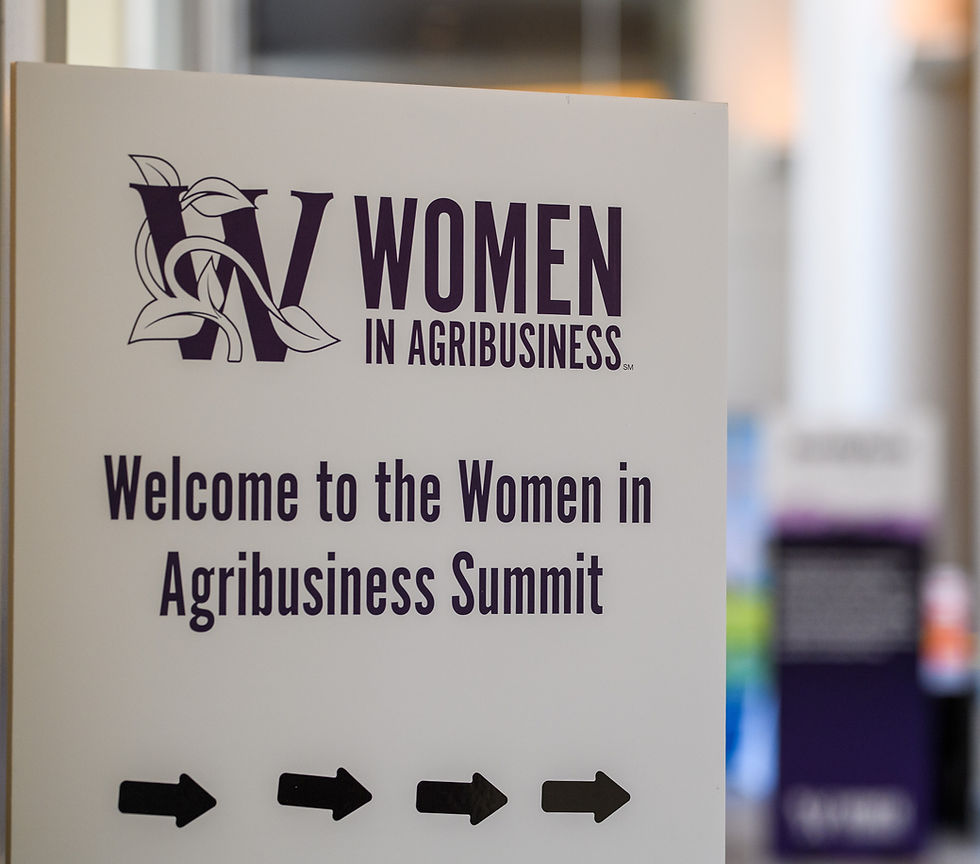Wild Bees: An Opportunity for Agriculture and Biodiversity
- Michelle Marshall

- Feb 27, 2024
- 3 min read
By Claude Flueckiger, Flueckiger Consulting (February 27, 2024)
(NOTE: This article was first published in our sister publication, Global AgInvesting News.)
Throughout my career in the agricultural industry, the impact of agricultural practices on bees has been an important consideration. Discussions in the industry often focus on honeybees (Apis mellifera). However, mounting scientific evidence has shown the importance of wild bees as pollinators safeguarding crop yields and as critical contributors to biodiversity. For biodiversity in particular, wild bees are even more important than honeybees. Unlike honeybees, many wild bee species are endangered. Growing the wild bee population can increase the biodiversity and sustainability of agriculture.

Pollinator decline is a significant concern because pollinators are essential to humanity’s survival. Public discussion of this issue has emphasized honeybees, often overlooking the importance of wild bees and other pollinators. Honeybees have received the most public attention because they are important for agriculture and face many challenges, such as loss of flowering habitat, varroamites, pathogens, and insecticides. However, despite these challenges, the ecological problem of bee pollinator decline is not primarily related to the honeybee population but to the decline in wild bee populations. Honeybees raised by beekeepers are agricultural animals similar to livestock, and not wildlife, contributing to biodiversity. High densities of honeybees have had a negative impact on wild bees due to competition for floral resources.
Numerous factors have contributed to the decline in wild bee populations. Loss of appropriate habitat has been the most critical issue by far. The quality of habitat, including the variety and quantity of flowers during the vegetation period, and the availability of suitable nesting places nearby significantly affect species variety and abundance among wild bees. Creating and preserving habitat for wild bees is among the best ways to help their populations grow.
The opportunity for wild bees to benefit agriculture is highlighted by the shift towards regenerative agricultural practices, which emphasize natural and sustainable food production. Wild bees help increase crop yields by supplementing the pollination of honeybees and serve as important insurance for growers by providing an alternative means of pollination in situations in which the activity of honey bees or other pollinators is inadequate. Wild bees also aid in pollinating wild plants in ways that honeybees do not.
Additional research is required for a comprehensive grasp of wild bees' biology and their potential advantages, as honeybees have been extensively studied and are better comprehended. An increased understanding of wild bees will reveal opportunities to promote these species through the use of new technologies in the interests of biodiversity and sustainable agricultural production. Various initiatives have already begun in this area and could have a major positive impact.
I became increasingly interested in the significance of wild bees in the context of sustainable agriculture and began to observe them firsthand. The interactions among these bees and their interactions with the rest of the fauna and flora are fascinating. I discovered a new world through macro binoculars and macrophotography. Below is a selection of photos that I took of 30 different species of bees, one from each genus present in the border triangle of Switzerland, France, and Germany. These photos represent all six families of bees that exist worldwide (a seventh family exists only in Australia).
Acknowledgement: I would like to thank Andreas Müller, Philipp Heller and Hannes Petrischak for their support in determining the bee species, and Patrick Flueckiger for editing this text.







*The content put forth by Global AgInvesting News and its parent company HighQuest Partners is intended to be used and must be used for informational purposes only. All information or other material herein is not to be construed as legal, tax, investment, financial, or other advice. Global AgInvesting and HighQuest Partners are not a fiduciary in any manner, and the reader assumes the sole responsibility of evaluating the merits and risks associated with the use of any information or other content on this site.








